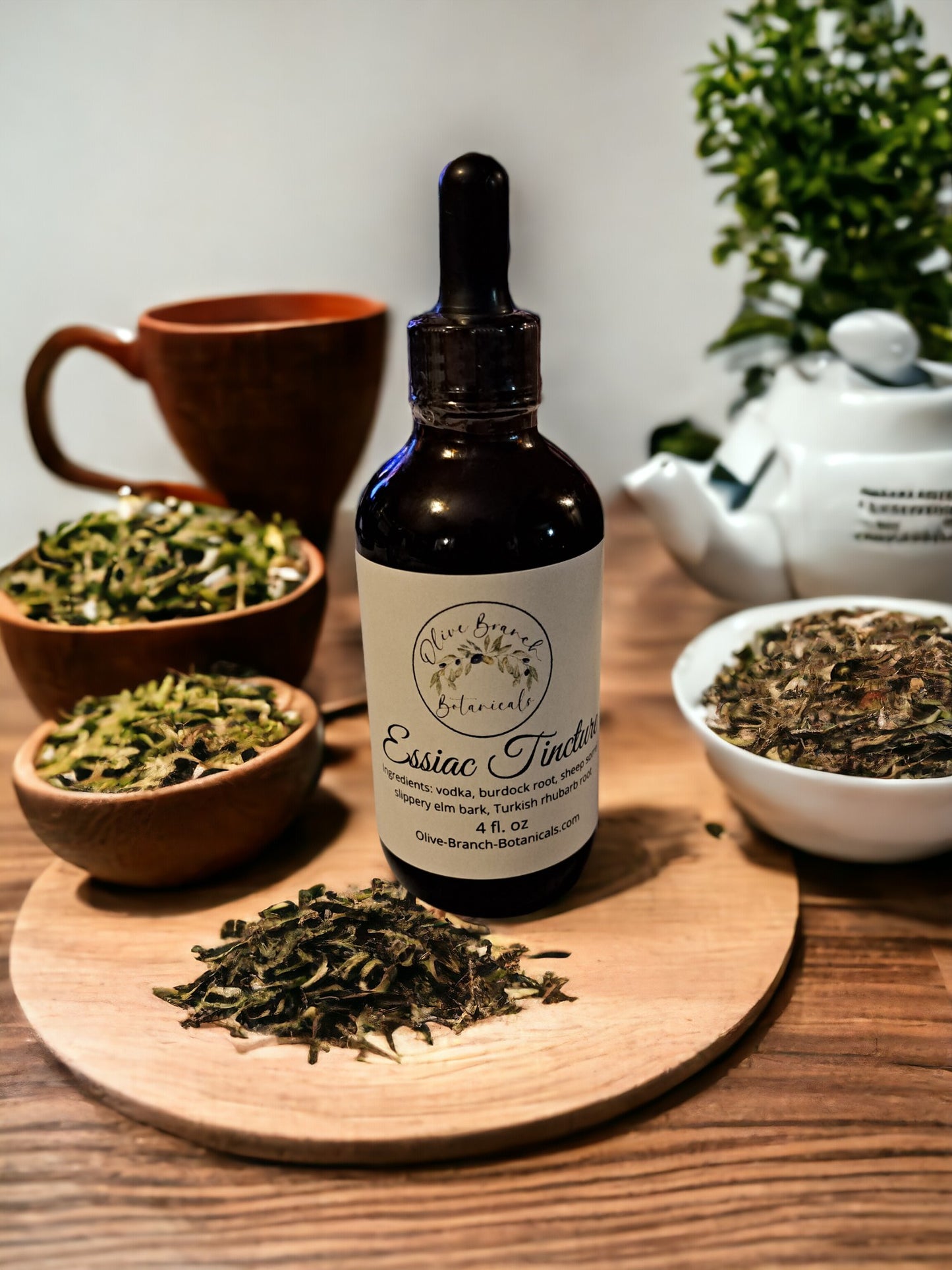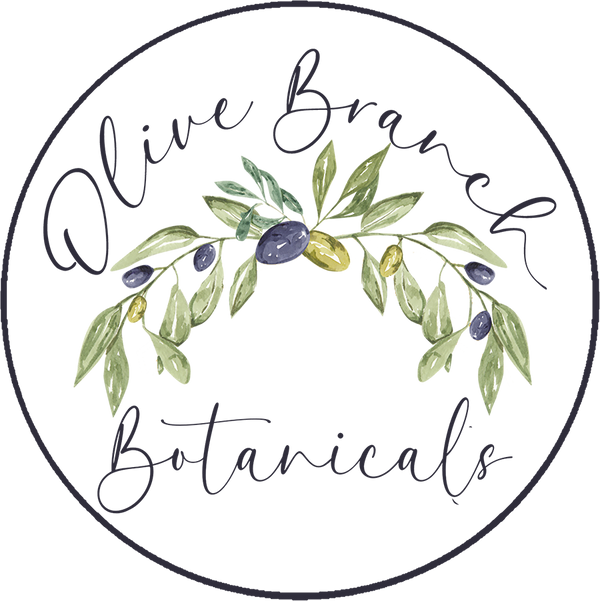Olive Branch Botanicals
Essiac Tincture
Essiac Tincture
Couldn't load pickup availability
Essiac is a herbal blend that gained popularity in the 1920s through the efforts of a Canadian nurse named Rene Caisse (Essiac spelled backward). Essiac has been widely promoted as a cancer treatment and remedy.
Essiac contains herbs like burdock root, sheep sorrel, slippery elm bark, and Turkish rhubarb root, which are believed to have immune-boosting properties. Supporting the immune system may enhance the body's ability to recognize and fight cancer cells.
Many of the herbs in Essiac, such as burdock root and Turkish rhubarb root, are rich in antioxidants. These compounds help neutralize free radicals in the body, which can cause DNA damage and contribute to cancer development. By reducing oxidative stress, Essiac may help protect against cancer.
Some proponents claim that Essiac helps detoxify the body by supporting liver and kidney function. Cleansing these organs is believed to remove toxins and waste products, which may contribute to cancer prevention and treatment.
Certain herbs in Essiac, like burdock root and slippery elm bark, have anti-inflammatory properties. Chronic inflammation is associated with an increased risk of cancer development and progression. By reducing inflammation, Essiac may help inhibit cancer growth.
Cancer patients may experience pain, nausea, fatigue, and other symptoms related to their disease or treatment. Some individuals report that Essiac helps alleviate these symptoms and improve quality of life during cancer treatment.
**Disclaimer**
These statements have not been evaluated by the Food and Drug Administration. This product is not intended to diagnose, treat, cure, or prevent any disease. Similarly, statements regarding dietary supplements have not been evaluated by the FDA and are not intended to diagnose, treat, cure, or prevent any disease or health condition.
Before starting any new treatment, especially those involving herbal extracts, individuals should consult with their healthcare providers to ensure compatibility with existing conditions or medications. This information serves to educate and inform, not to replace medical advice. While many herbs are generally safe, potential medical interactions exist.
Share


